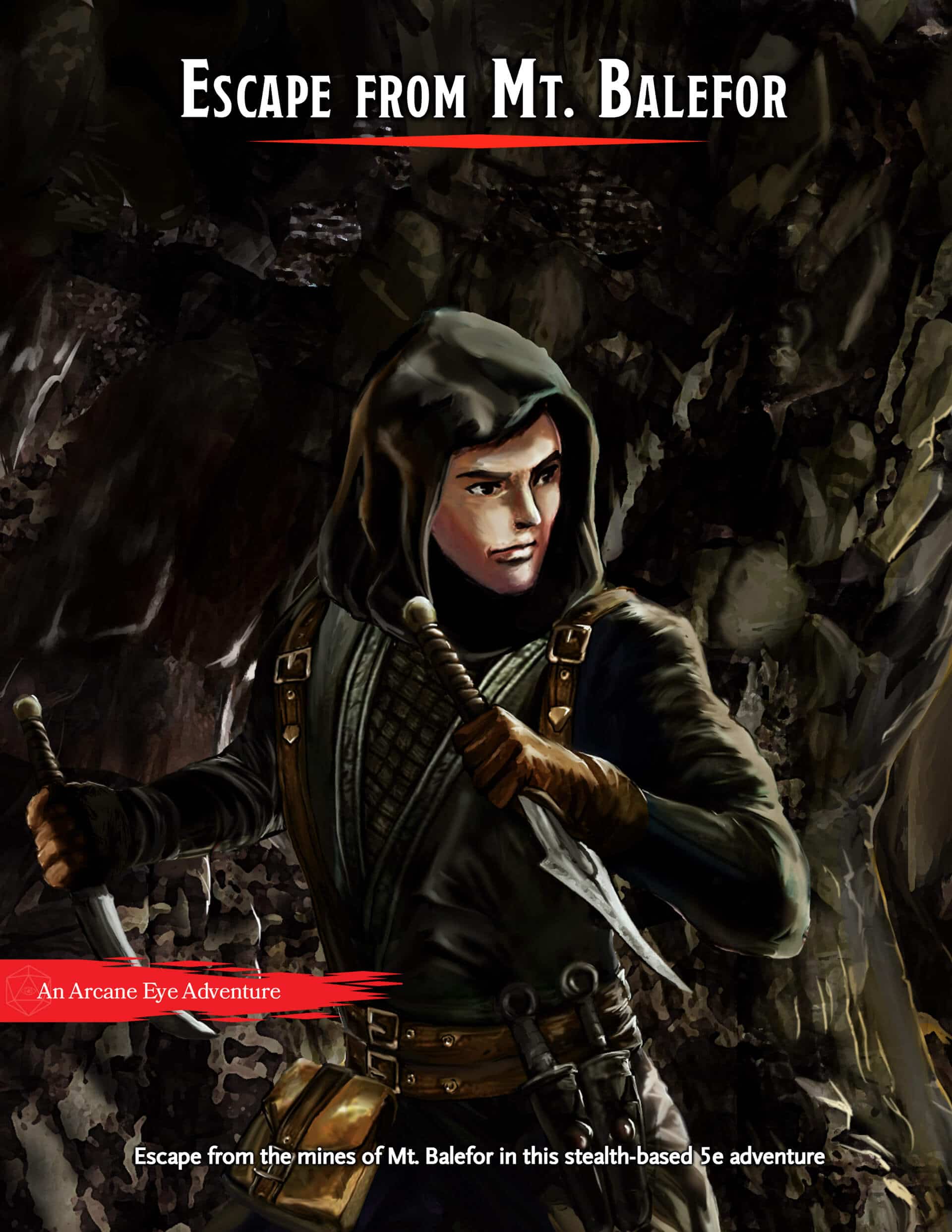War Caster 5e
Published on March 12, 2022, Last modified on September 28th, 2023

Linvala, Shield of Sea Gate - Wizards of the Coast - Wayne Reynolds
Arcane Eye may earn a small commission from affiliate links in this article.
Learn more.What Is War Caster 5e?
The thought of wading into battle, casting powerful spells, and wielding a mighty weapon is a fantasy for many players. However, the rules of D&D 5e don’t make this dream easy. With the inclusion of concentration and spellcasting foci in 5e, spellcasting has become challenging in melee combat.
One of the most important ways to fulfill this playstyle is to boost your success on concentration checks. This is where War Caster comes in.
How Does War Caster Work?
Once you pick up this feat, you get a couple of benefits:
- First, whenever you take damage while maintaining concentration, you gain advantage on that subsequent Constitution check.
- When casting a spell, you can perform the somatic (aka hand movements) of that spell, even if you’re wielding a shield or weapon in them.
- Whenever an enemy would provoke an opportunity attack from you, instead of attacking, you can opt to cast a spell at them instead. However, the spell has to target only that creature and must have a casting time of one action.
Essentially, it makes being up close and personal while spellcasting more viable.
Is War Caster Good?
We gave War Caster an S Tier rating In our 5e Feats Tier List, making it among the most potent feats in D&D 5e.
War Caster is similar to Polearm Master because it enables a particular build rather than offering raw power to an already established build.
There are tons of characters that like to wield magic in combat, which can mean taking damage from multiple sources each turn. The last thing these casters want to do is lose concentration and waste an action, bonus action, or spell slot casting a spell again. Therefore, getting advantage on concentration checks is massive for these builds.
War Caster also negates the need for a free hand for somatic components and can allow you to cast a spell as an opportunity attack. Without this feat, melee spellcasters take a massive hit to their viability.
War Caster 5e Interactions
Interestingly enough, War Caster ends up with a few neat interactions that you can experience while playing. Here are a few examples:
Blade Cantrips
You can cast green-flame blade or booming blade as your reaction for an opportunity attack, allowing additional damage if the creature continues to move. (However, it’s up to the DM’s discretion the creature wants to continue to move after the spell has been cast).
Blade Cantrips, Reach, and War Caster
If you have a reach weapon and your enemy provokes an opportunity attack, you cannot use the War Caster feat to cast green-flame blade or booming blade. This is because the range of the cantrips is limited to 5ft.
This doesn’t mean that your reach is ignored for the opportunity attack, just that the spell is still limited to its range. If your reach is 10ft, you will still provoke opportunity attacks from that range.
However, you can use green-flame blade or booming blade with a reach weapon if you have the Spell Sniper feat and are using the versions of the feats printed prior to Tasha’s Cauldron of Everything.
Cleric and Paladin Spellcasting Focus
If you are a cleric or a paladin, you can cast spells that require material and somatic components as long as your holy symbol is on your shield without needing War Caster. Those who choose to forgo a shield will still need to hold onto their holy symbol to cast spells with material components.
Which 5e Classes Make the Most of War Caster?
The color code below has been implemented to help you identify, at a glance, how good the War Caster 5e feat is for a specific class/subclass.
- Red isn’t going to contribute to the effectiveness of your character build at all
- Orange Situationally good, but a below-average option otherwise
- Green is a good option
- Blue is a great option, you should strongly consider this option for your character
- Sky Blue is an amazing option. If you do not take this option your character would not be optimized
Artificer: Artificers get access to shield proficiencies, so builds that want to wield a weapon with their shield will have a use for War Caster. That said, artificers need to have their spellcasting focus in hand to cast spells that require material components. Luckily for artificers that want to wield a shield, any infused item can also count as a spellcasting focus.
Barbarian: Barbarians don’t gain anything from War Caster, as they aren’t casters.
Bard: Advantage on CON saves and casting spells as opportunity attacks are both beneficial components of this feat. You really need this if you are a College of Sword bard or a College of Valor bard.
Cleric: War Caster isn’t a required feat Clerics, even though some subclasses are prominent melee spellcasters. Typically, builds that use a sword and shield who want to cast spells will run into issues because they need a free hand for somatic and material components of those spells. Clerics have the ability to adorn their spellcasting focus on their shields. This means that they can cast spells that require somatic and non-costly materials without having to free up a hand. One of the biggest draws to picking up War Caster is the ability to perform somatic components of spells while you have a sword and shield in hand. That said, there is plenty of other value for War Caster, mainly that it grants advantage on CON checks made for retaining concentration. There are plenty of powerful cleric spells that require concentration, this feat helps you make sure you don’t lose concentration on spells while in combat. The ability to cast spells with a single target as an opportunity attack is also beneficial for sneaking in extra damage.
Druid: Most druid subclasses will spend their time casting spells in the backlines and don't normally have their hands full with a weapon and shield, so most of this feat isn't that beneficial. That said, advantage on concentration checks is always useful for full caster classes. The best use for this feat would be Circle of the Moon druids, who like to cast concentration spells before they transform into their Wild Shape and enter the fray.
Fighter: Fighters who end up as Eldritch Knights will want this feat. They will always be up-close and personal, and they usually don’t have material components for their spells. Paired with fighter’s proficiency in CON, you’ll be tough to stop.
Monk: Monks can’t cast spells without spending Ki points, so there’s no point in picking up this feat.
Paladin: Paladins interact with War Caster in the same way as clerics. This is because they both have the ability to adorn their spellcasting focus on their shield and can both be heavy armor + shield-wielding melee spellcasters. The ability to cast spells with a single target as an opportunity attack isn’t particularly appealing to paladins as they will want to use their weapon attack + smite instead. The benefits of having advantage on CON checks to maintain concentration will vary widely from subclass to subclass. For instance, the Oath of Vengeance has plenty of powerful Oath Spells that require concentration but the Oath of Glory does not. For paladins looking to maximize their concentration potential, it might be more worth it for paladins to take Resilient (CON) instead of War Caster. This is because it provides an ASI to CON as well as proficiency to CON saving throws.
Ranger: Rangers can certainly use War Caster. Based on the spells they choose, they might see a decent buff from this feat. They’re pretty likely to have their hands full, and concentration helps with some of their better spells. However, if you’re choosing to be in the backlines, it’s not as worth it.
Rogue: Rogues who choose to become Arcane Tricksters can find a lot of use, as several of their spells will require concentration or somatic components. Arcane Tricksters typically won’t want to cast spells as opportunity attacks. This is because opportunity attacks can net them another sneak attack as long as they meet the conditions.
Sorcerer: Advantage on CON saves won’t be as necessary with the sorcerer’s proficiency in CON saves. Casting spells as opportunity attacks is a beneficial component of this feat but likely won’t get used much because sorcerers prefer not to be in melee range.
Warlock: Before Tasha’s Cauldron of Everything, this was necessary for melee Hexblade builds that want to keep hex up as long as possible. Now, with the Eldritch Mind invocation available, this feat seems like a waste of ASIs due to the reasonable number of invocations warlocks get, compared to the meager number of ASIs they are given.
Wizard: Wizards are glass cannon spellcasters that don’t have any CON bonuses. War Caster will help when your squishy wizard inevitably gets attacked but isn’t a necessity. Bladesingers want to pick this up.
War Caster 5e FAQs
Which builds need War Caster?
Any class that wants to be knee-deep in bad guys while casting spells will love War Caster. Therefore, any melee-focused spellcaster that isn’t a divine caster (Cleric or Paladin) will want to pick this up ASAP.
How does War Caster interact with spellcasting foci?
Depending on the class you chose, the answer is a little different.
You can use the same hand for a spellcasting focus and perform somatic gestures when casting a spell. However, War Caster doesn’t omit the need for material components like a foci can. If your spell needs a material component, you’re better off doffing your shield or weapon and picking up those items or your focus to cast it.
The only exception to this is casters who use holy symbols. Because their spellcasting foci can be mounted to their shield, they don’t need to free a hand up for either component. This is why War Caster isn’t as beneficial for Clerics and Paladins.
Fill out the form below to receive Escape From Mt. Balefor for free!
Or follow us on Instagram, Twitter, and YouTube.
Jeff Nabors
Jeff Nabors has been playing D&D ever since he stumbled upon the 3.5E core books in his high school library. When he isn’t running a campaign or designing a game, you can find him on Twitch, writing about game design, or staring off into the endless abyss.

